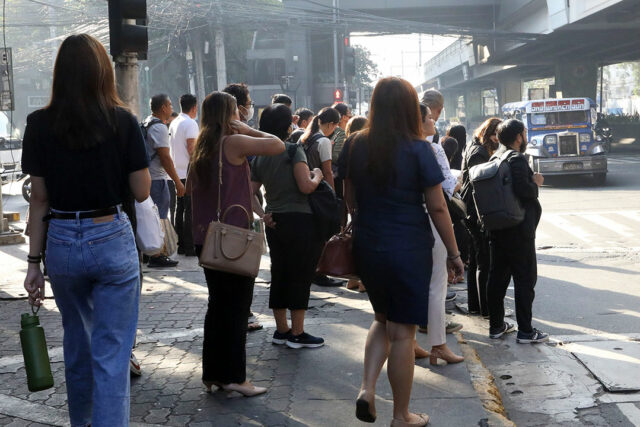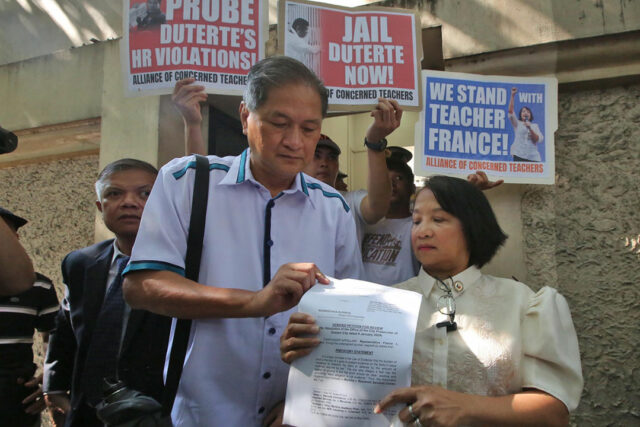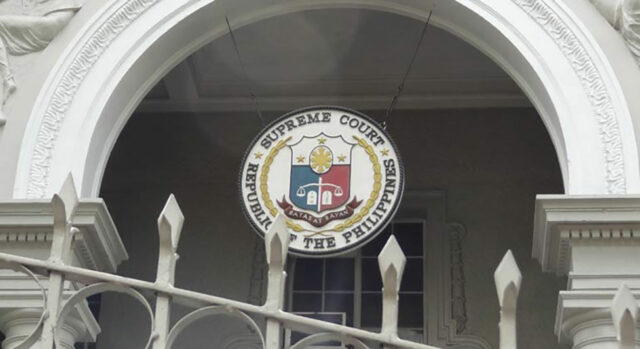DoJ, Defense department reject call by Duterte for Mindanao separation
A CALL by ex-President Rodrigo R. Duterte for Mindanao’s separation from the Philippines is illegal, according to the Department of Justice (DoJ).
In a statement on Monday, DoJ said the call undermines the country’s territorial integrity under the 1987 Constitution.
“Secession is regarded as contrary to the principles of our democratic society, as stated in Article II, Section 2 of the Constitution,” it said. “The DoJ remains committed to protecting our sovereignty and upholding the sanctity of the highest law of the land.”
Last week, Mr. Duterte said political forces in the southern Philippine region of Davao would start a signature campaign for the separation of Mindanao from the Philippines.
He said this after accusing President Ferdinand R. Marcos, Jr. of being a drug addict at a political rally in Davao City that opposed the push to amend the 1987 Constitution.
The former president also accused his successor of wanting to stay in power beyond his term and slammed the International Criminal Court (ICC) for its probe of his deadly war on drugs that had killed thousands.
Mr. Marcos struck back by saying his predecessor’s alleged use of fentanyl, a highly addictive synthetic opioid for pain relief, could have affected his judgment. Mr. Duterte admitted to using the drug in 2016 for pain relief after a motorcycle accident.
“Our nation’s strength lies in unity, and we call upon all Filipinos to reject secessionist ideologies and work together for a strong, united and undivided new Philippines,” DoJ said.
Meanwhile, Defense Secretary Gilberto C. Teodoro, Jr. said his agency would secure the integrity of the national territory under the Constitution. “We will strictly enforce this mandate whether externally or internally,” he said in a statement.
National Police chief Benjamin Acorda, Jr. also said any efforts to secede a portion of the nation would only cause chaos.
The National Security Council on Sunday said the Philippine government would “not hesitate to use its authority and forces to quell any attempts to dismember the republic.”
“Any attempt to secede any part of the Philippines will be met by the government with resolute force, as it remains steadfast in securing the sovereignty and integrity of the national territory.”
Tensions within the ruling alliance have worsened since the President’s congressional allies stripped Vice-President Sara Duterte-Carpio of P650 million in confidential funds in this year’s national budget.
Mr. Marcos ran in tandem with Mr. Duterte’s daughter in the 2022 elections under a platform of unity.
Dennis C. Coronacion, who heads the University of Sto. Tomas Political Science Department, said the secession threat “serves as a warning or threat of what the former President can do.”
“It’s aimed at sending a strong message to President Marcos that they should not be treated badly,” he said in a Facebook Messenger chat.
Local governments have opposed the secessionist idea, with the League of Cities of the Philippines saying “our nemesis is a divided nation.”
“We believe that the entire nation, including Mindanao, with its abundant resources and untapped potential, can flourish through cooperative and collective efforts,” the Union of Local Authorities of the Philippines said separately.
At the weekend, several lawmakers and former Muslim separatists from Mindanao said the move would erode the gains from past peace negotiations.
Mr. Coronacion said opposition to Mr. Duterte’s secessionist idea does not mean he has lost his political clout.
“Let’s remember the time when Duterte was still the country’s president,” he said. “He tried to change the form of government to federalism but immediately junked it after seeing that the people were against it.” — John Victor D. Ordonez and Kyle Aristophere T. Atienza












